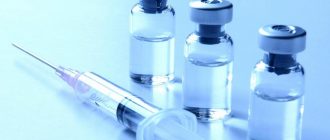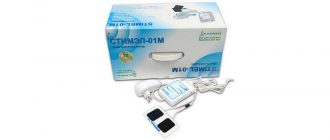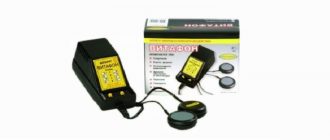Acute prostatitis is a disease characterized by an inflammatory process in the prostate gland. Most often, the root cause is a decline in immunity and infection, but it can occur with a sedentary lifestyle and the formation of stagnation.
There are 3 forms of the course, after which the disease becomes chronic and difficult to treat. The basis of treatment is antibiotics, other drugs are prescribed depending on the symptoms. To speed up recovery, physiotherapy and folk remedies can be prescribed in combination with medications.
The ICD-10 code for acute prostatitis is N41.0.
Causes
The prevalence of acute prostatitis is quite low, about 6% of all cases of prostate inflammation. Most often it occurs in men 50-60 years old, however, 10% of all cases of the disease occur in the age group of 20-30 years.
There are 2 reasons for the development of the disease:
- Development of bacteria.
- Stagnant processes.
Acute prostatitis most often occurs when infected with the following microorganisms:
- coli;
- staphylococcus;
- Pseudomonas aeruginosa;
- Klebsiella;
- enterococcus;
- Proteus.
Some of these bacteria can enter the prostate gland through the urethra during unprotected intercourse. However, the majority are constantly present in the body and are opportunistic microflora, i.e., during normal functioning of the immune system, their activity is suppressed. But when the protective functions are impaired, they penetrate the mucous membrane of the prostate and begin to actively multiply, which causes an inflammatory process.
Factors causing non-bacterial acute prostatitis include:
- physical inactivity (sedentary lifestyle);
- excess weight;
- unhealthy diet and lack of eating routine;
- local and general hypothermia;
- low or excessive sexual activity;
- interrupted sexual intercourse;
- the occurrence of blood clots and factors contributing to this (including alcohol and smoking).
Under the influence of one or several factors, stagnation of prostatic secretion or blood occurs, which disrupts the normal functioning of the gland and leads to an acute form of the disease. In addition, when the secretion stagnates, there is a high risk of its suppuration and the formation of an abscess, which will aggravate the course of the disease.
Forms
The course of acute prostatitis is divided into 3 forms, which are also stages:
- Catarrhal.
- Follicular.
- Parenchymatous.
Catarrhal
The catarrhal form occurs with changes in the upper mucous and submucosal layers in the outlet ducts of the prostate lobules. Swelling of the walls occurs, which contributes to the stagnation of secretions in the follicles. The gland swells and increases in size, which causes urination problems.
At this stage, symptoms are mild, sometimes almost absent. Diagnosis is extremely difficult, so treatment usually occurs at later stages.
When the functioning of the immune system is normalized, the body can cope with the disease itself during this period.
Follicular
Follicular prostatitis occurs with multiple lesions and involvement of deeper layers of tissue. Suppuration of individual lobules of the prostate may occur; this may be indicated by an admixture of pus in the urine. Other symptoms also intensify and already make life significantly more difficult.
With timely diagnosis and intensive therapy in this phase, acute prostatitis can be treated within 10-14 days.
Parenchymatous
Parenchymal acute prostatitis occurs when infection penetrates into functional tissue (parenchyma). The inflammatory process covers the entire organ, the size of the gland increases significantly, and there is a high probability of the formation of purulent foci.
Symptoms manifest themselves in a wide range of phenomena, but, nevertheless, with timely initiation of therapy, the prognosis is favorable. Otherwise, acute inflammation turns into chronic prostatitis with periods of exacerbation.
The most dangerous consequence of acute prostatitis is the possibility of sepsis (blood poisoning), which without treatment can be fatal.
Symptoms
Signs of the acute form of the disease in men differ at different stages and can manifest themselves differently, depending on individual sensitivity and the condition of the body. The main symptoms of the acute form:
- elevated temperature (up to 38 °C). Sometimes a normal temperature may be observed when measured under the armpit, but elevated when measured rectally;
- pain in the perineum and lower back;
- frequent urination, especially at night;
- burning or pain at the end of urination or during ejaculation;
- erectile dysfunction;
- general sensations during intoxication - weakness, headache, feeling of muscle fatigue, pain in bones and joints;
- Possible constipation or painful sensations during bowel movements.
Diagnostics
Diagnosis of the acute phase includes the following laboratory and instrumental examinations:
- palpation (may be contraindicated in case of severe pain);
- microscopic examination of prostate secretion;
- bacterial culture of prostate secretions (the main method, because it allows you to prescribe effective agents that act specifically on the bacterium that caused the inflammation);
- PCR study of scrapings;
- uroflowmetry (urination study);
- Ultrasound, CT or MRI of the prostate gland.
Treatment
Treatment of acute prostatitis is complex, but drug therapy plays the most important role. The following may also be prescribed:
- physiotherapeutic procedures;
- therapeutic diet;
- folk remedies.
Treatment of acute prostatitis is possible within a relatively short period of time - 10-14 days, however, this will only happen if you consult a doctor in a timely manner, high-quality diagnosis and compliance with all the rules of therapy. In the case of bacterial origin, incomplete treatment will only worsen the situation - the disease will become chronic, and the bacteria will no longer be susceptible to the antibiotics that were used for treatment. Therefore, antibiotics are taken for at least 4 weeks.
Medications
To treat acute prostatitis at home, medications from the following groups are prescribed:
- Antibiotics.
- Non-steroidal anti-inflammatory drugs.
- Diuretics.
- Antispasmodics and alpha-blockers.
- Antihistamines and anticholinergics.
- Stimulators of intestinal microflora (because taking antibiotics inhibits it).
- Immunostimulants.
- Interferons.
- Analgesics.
- Antipyretics (antipyretics).
The choice of antibiotics is based on bactericidal culture of prostate secretions. Various groups are tested and the one that is most effective against the infectious agent in each specific case is selected. The penetrating ability of the drugs is also taken into account, because not all of them can be effectively delivered and absorbed by the prostate gland. However, with acute inflammation (as opposed to chronic), the penetrating ability into the prostate gland increases, so the priority when choosing is the strength of the drug. The most effective antibiotics from the list are:
- penicillins;
- fluoroquinolones (most often the most effective);
- macrolides;
- cephalosporins;
- tetracyclines.
Physiotherapy
Physiotherapeutic procedures also help treat acute prostatitis; most often they are prescribed:
- massage of the prostate gland (if there is no contraindication);
- electrophoresis;
- UHF or microwave therapy.
Diet
One of the important points is healthy nutrition. It is recommended to eat meals in small portions, 5-6 times a day with 2-3 hour breaks between them. It is advisable to completely exclude fatty, hot, spicy, salty and canned foods from the diet. 70% of the diet should be vegetables and fruits.
Fluid intake is extremely important. You need to drink at least 3 liters of pure still water per day. Drinking strong tea, coffee and alcoholic beverages is prohibited.
Folk recipes
They are extremely rarely prescribed by doctors, but folk remedies can complement complex treatment. Most often used:
- aspen bark;
- Oak bark;
- pumpkin seeds;
- honey;
- chamomile;
- chestnut;
- horsetail
Before use, you should consult with a urologist and discuss the method of use and dosage. Some substances have contraindications or are allergens, so their use should be careful.



